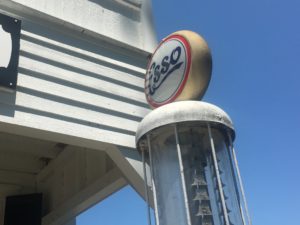 On day one, the meaning of a new brand name can be found in the dictionary (assuming it’s a real word). For a fleeting moment, “Amazon” was a river, “Apple” was a fruit, and “Kindle” conjured fuel for fire. But if early, literal meanings remain over time, the managers of the brands fail.
On day one, the meaning of a new brand name can be found in the dictionary (assuming it’s a real word). For a fleeting moment, “Amazon” was a river, “Apple” was a fruit, and “Kindle” conjured fuel for fire. But if early, literal meanings remain over time, the managers of the brands fail.
That’s right, they fail.
The word must morph into a brand name. That is, we don’t think of the chaste when booking a flight on Virgin Atlantic. Virgin is the linguistic shorthand for all that the brand means to you. Tide is a detergent, not the ebb and flow of the ocean. It is this transfer of meaning that makes brand names so powerful. They can take an understandable concept and co-opt its use to a brand context. Or, they can use coined names that were never words and imbue the “empty vessel” with the brand’s meaning. In this case, there’s no meaning to replace.
So, should you conclude that the meaning behind a word is immaterial when considering names for a brand? If the word’s meaning is something to overcome, should we agonize over its relevance? Well, yes and no.
Yes, in that early meaning establishes the brand’s essence and aligns those managing the brand around a central positioning. For example, “Amazon” was likely chosen because the benefit of the brand was to be wide selection. The vastness of the river was an apt metaphor. The company focused the brand on a benefit rather than a product, and vast selection is core to the brand, regardless of the type of product. Consider the Toys R Us name. It elicits little beyond describing the product line and limits expansion beyond toys.
On the other hand, far too much angst is expended over the pre-transferred meaning. Brand folks spend too much time agonizing over the day one word and too little imagining the on-going meaning the name should morph into. This often leads to overly descriptive names where the brand never really gets past the literal word. Like Sony Reader versus Amazon Kindle. I can tell people I love my Kindle and the testimonial is understood. If I tell them I have a Reader, I need to include the Sony endorsement-an endorsement that doesn’t conjure an e-book specialization. The result is that Sony fails to create a new e-book brand name that takes on its desired meaning. It’s a product focus, adding nothing to position the brand or tell a deeper story.
Conversely, Kindle uses the imagery of igniting the imagination out of the gate and then quickly eclipses that by co-opting the word and turning it into a brand. The company has a basis for storytelling, and the brand owns a proprietary name centered around an idea rather than a thing. Amazon may or may not continue to exploit the spark idea, but the essence of the brand is established, and the company can use it as a filter to vet future brand decisions.
In these tough economic times, the tendency is to revert to the “safest” choices. “I don’t have the money to teach people what my brand stands for, I have to describe it in the name.” But, the perceived safe move is nothing more than an illusion. The true risk is an undifferentiated brand name that never graduates beyond its literal definition.








